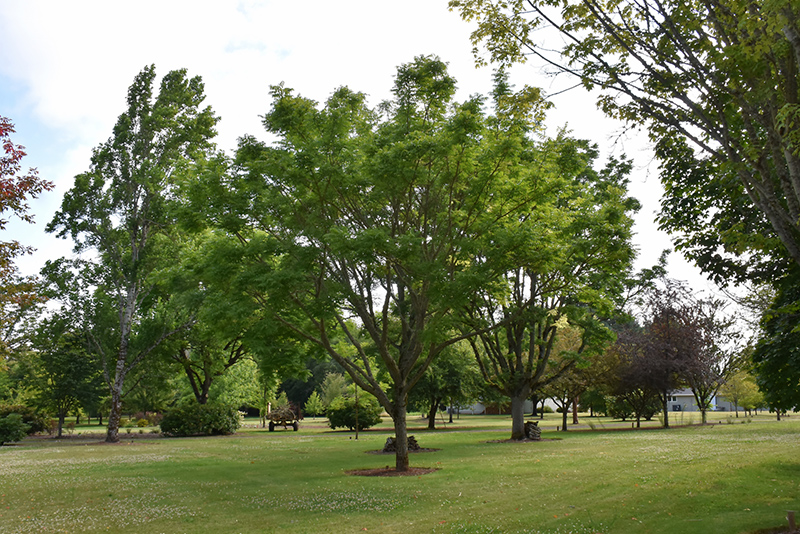Eye Stopper Cork Tree - New For 2025!
Phellodendron lavallei 'Longenecker'
Height: 40 feet
Spread: 35 feet
Sunlight:
![]()
Hardiness Zone: 4a
Description:
A stately variety that tends to grow upright, then spread as it matures; an excellent landscape tree with interesting corky bark; and spectacular, bright yellow fall color; a generally seedless selection
Ornamental Features
Eye Stopper Cork Tree is primarily valued in the landscape for its ornamental upright and spreading habit of growth. It has dark green deciduous foliage. The glossy pointy compound leaves turn yellow in fall. The warty gray bark is extremely showy and adds significant winter interest.
Landscape Attributes
Eye Stopper Cork Tree is an open deciduous tree with an upright spreading habit of growth. Its average texture blends into the landscape, but can be balanced by one or two finer or coarser trees or shrubs for an effective composition.
This is a relatively low maintenance tree, and is best pruned in late winter once the threat of extreme cold has passed. It has no significant negative characteristics.
Eye Stopper Cork Tree is recommended for the following landscape applications;
- Shade
Planting & Growing
Eye Stopper Cork Tree will grow to be about 40 feet tall at maturity, with a spread of 35 feet. It has a high canopy with a typical clearance of 6 feet from the ground, and should not be planted underneath power lines. As it matures, the lower branches of this tree can be strategically removed to create a high enough canopy to support unobstructed human traffic underneath. It grows at a medium rate, and under ideal conditions can be expected to live for 60 years or more.
This tree should only be grown in full sunlight. It is an amazingly adaptable plant, tolerating both dry conditions and even some standing water. It is not particular as to soil type or pH. It is somewhat tolerant of urban pollution. This is a selected variety of a species not originally from North America.


